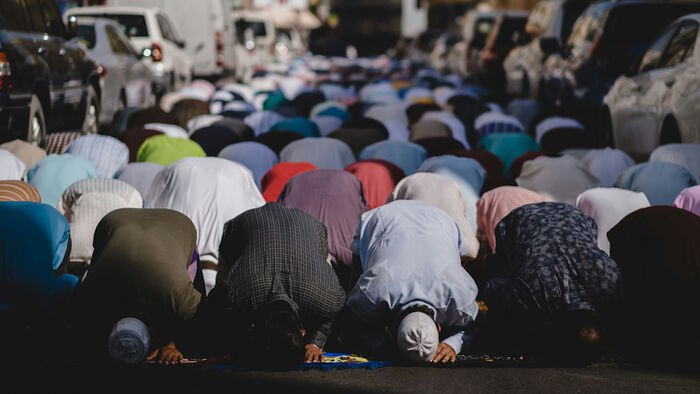If far-right parties do not get media coverage, they risk being side-lined in the political arena. This has turned out to be the case for the Romanian far-right party Alliance for the Union of Romanians (AUR). AUR emerged strongly during the COVID-19 crisis, using populist rhetoric with a nationalist ideology centred on economic protectionism, Orthodox Christianity, traditionalism, and anti-COVID restrictions and vaccines. Another major geopolitical crisis later, the trajectory of AUR is different.
AUR’s trajectory
The centre-right coalitions led by the National Liberal Party (PNL) and Save Romania Union (USR) fumbled the response to COVID-19. This gave rise to institutional crises, which, in turn, facilitated the far-right’s return to mainstream politics. Between May and December 2020, the Romanian public discovered how politicised the healthcare system is and how connected hospital managers, who usually lack medical education, are to political parties. Consequently, medical institutions almost succumbed under the pressure of COVID-19, and the resulting unstable government coalitions facilitated the rise of AUR.
While the mainstream parties debated COVID-19 restrictions and the freedom of movement for Romanians on television, AUR opposed these policies and instead communicated directly with the electorate via social media. Throughout this time, AUR perfected its social media know-how to reach audiences who felt disenfranchised in Romania or those who felt exploited in West-European countries like Germany or Italy. AUR’s effort proved worthwhile, as 120.000 Romanians, whose identity was caught between these realities, gradually radicalised. The Romanian diaspora, which once tilted towards centre-right and pro-reformist parties, was swayed by AUR’s nationalist-populist rhetoric. 23% of Romanians from the diaspora voted for AUR. In Italy and Spain, the countries with the largest Romanian diaspora, AUR got the most votes. Consequently, AUR reached 9.1% in the 2020 elections.
In 2021-22, the party managed to capture the public’s attention and elevate its position to that of the second-largest party in parliament, at 22.3%, through carefully choreographed protests. The use of violence did not drive people away, nor did its use of antisemitic and anti-LGBTQ rhetoric and policies convince Romanians to distance themselves from AUR. If anything the opposite, while the party presented itself as a punisher of corrupt liberal elites from the mainstream parties. However, the Russo-Ukrainian war sharply reduced AUR’s popularity in February and May. In three months, AUR dropped by 12% in the polls.
Internal turmoil
Before February 24, when the Ukrainian-Russian war started, AUR’s discourse grew more extreme. Consequently, some news channels like Romania TV noticed an opportunity and gave AUR a platform to increase their viewership. In return, AUR's brashness and unconventional discourse reached new electorates. More channels granted prime time exposure to AUR bigwigs George Simion and Claudiu Târziu, the party’s co-chairs. While Simion is responsible for the mediatisation of demonstrations, Târziu is the AUR’s ideologue. Simion rose to power after a career as a football ultra, whereas Târziu was a journalist. Both have employed verbal and physical violence to further their ends. Journalists and historians alike have underlined AUR’s imitation of the Romanian fascist Iron Guard with their anti-system position, the creation of moral panics, and deployment of verbal and physical violence.
But even as the party grew, its structure began crumbling in early February 2022. Already before then, the public could see that the two chairs were at odds with each other. Simion announced the acceptance of several far-right personalities into AUR, who overtly glorified the interwar fascist Iron Guard – which is criminalized in Romania – clearly opposed the EU, and favoured Russia.
Four days before Russia invaded Ukraine, AUR was a divided party. Târziu’s wing desired for AUR to become a respectable conservative party, accepted by a larger Romanian electorate. Târziu’s vision clashed with Simion's wing, which wanted to preserve AUR’s reputation as a fierce mover and shaker of Romanian politics. Fearing a coup, Simion called for a party congress in March 27 to elect a single chair. In order to forestall a further split in the party, in his new position as sole chair, Simion accommodated Târziu’s demands concerning pro-EU membership rhetoric, and the removal of controversial figures who endorsed closer ties to Russia.
The consequences of the congress
AUR’s overhaul generated a plethora of new far-right groups. Several MPs who previously supported AUR’s extremist direction went on to create new parties. Disillusioned with the current management, they criticised Simion for his soft rhetoric on anti-COVID measures and positive stance on EU membership, and went on to form other far-right parties like the Romanian People's Patriots Party and Orthodox Brotherhood. They oppose NATO and the EU, and promote conspiracy theories like the Great Reset, a narrative which claims that a global elite is using COVID-19 to enforce radical social change and exploit natural resources. It is unlikely that these parties will succeed in the aftermath of Russia’s invasion of Ukraine.
The Russian invasion’s impact on the far-right
Before the war, AUR was the main topic of the RomaniaTV and Antena 3 news channels, and the most shared Romanian party on Facebook. Indifferent to the damage done by mainstreaming it, AUR’s extremism was exploited by the media for profit. However, sensing the implications of Russia’s invasion for regional security, the media quickly changed its narratives and reduced the coverage of the party, focusing instead on the war and its consequences.
Overall, the Russian invasion of Ukraine has been a setback for AUR’s progress. Across Western Europe, the Ukraine crisis made life difficult for right-wing populists and far-right parties, because most like-minded leaders from Poland, Italy and Czechia noticed the Russian threat to European security. The same may have happened to AUR, which was not as quick to denounce Russia’s invasion as its far-right counterparts elsewhere in Europe. As Russian guns levelled Ukraine’s cities and villages, the Romanian public remembered the Russian occupation in the 1940s, so that the image of Russia as a historical antagonist has been re-popularised.
Through the initial phase of the war, Romanian society showed incredible solidarity with Ukrainian refugees, whereas former AUR senators, promoted by Kremlin’s mouthpiece, Sputnik.ro, claimed there was no war in Ukraine. The position of AUR became uncomfortable for Simion when questioned by the media about the party’s silent marches past the Russian embassy in Bucharest. The more Russian guns pummelled Ukrainian cities, the less AUR had to say. Its rhetoric and street performances did not have the same impact as previously.
Yet, the last nail in the AUR coffin was the reaction of the Romanian public vis-à-vis EU and NATO unity. Anti-EU and anti-NATO rhetoric has become contentious for AUR as popular support for EU and NATO membership has skyrocketed. Anti-EU and anti-NATO statements made by AUR’s leaders were replayed in Romanian media. Journalists showed discursive similarities between AUR and the Russian-promoted narratives on Sputnik or Facebook. Political analysts showed that the policies promoted by AUR are similar to those of the Russian and Hungarian governments, and AUR opposed EU sanctions of Russia. Quickly, the Russian connection became more visible to the public.
The media’s narrative shift might act as the cordon sanitaire that the political parties could not establish because these mainstream parties may want to be seen before the 2024 elections as bulwarks against the far-right and defenders of Romania’s pro-European and NATO membership. However, 2024 is still a way off and Romania is notorious for its unstable political climate. The current coalition is fraught with regular internal turmoil and is widely perceived as unqualified. The government of President Klaus Iohannis is generally detested. High prices and increased corruption generate anxiety. These are dormant crises on which far-right parties can still capitalise.
.jpg)

.jpg?alt=listing)


